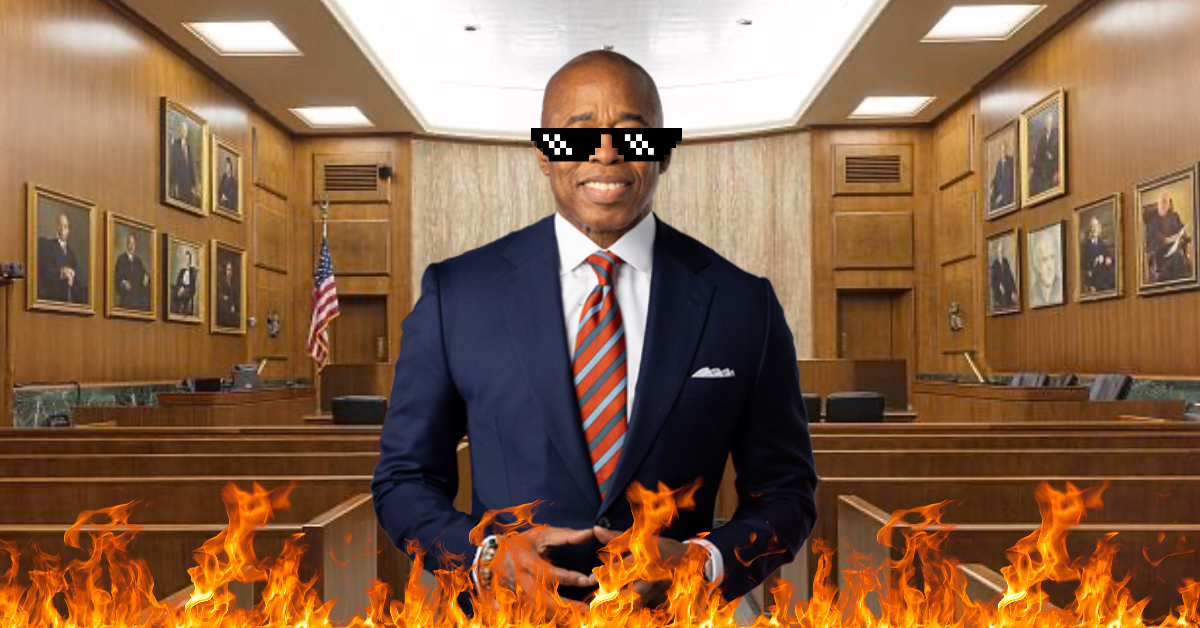In a stunning development that some are calling a “constitutional crisis,” Mayor Eric Adams has recently entered a plea of “I Know You Are, But What Am I” in exchange for the Department of Justice no longer pursuing charges against him. This unorthodox plea deal, which was previously assumed to be a voluntary dismissal, sets a dangerous precedent for other criminal defendants who attempt to curry favor with the current Trump administration in exchange for leniency.
Federal Judge Dale Ho, the judge overseeing Adams’ case, now faces Adams’ charges of corruption and embezzlement. Judge Ho has entered a new whirlwind of controversy, as he must now defend whether he himself illegally pressured the fire safety inspection team to approve the new Turkish embassy design, as well as accumulating improper benefits through Turkish airlines and misusing campaign funds. When asked whether Judge Ho would attempt to use the infamous “rubber-glue” defense to avoid prosecution for the new alleged dealings with the Turkish government, Adams’ defense team noted that the plea had included an airtight “no takesie backsies” provision that would prevent Judge Ho from returning the case to Adams.
Senior officials at the Department of Justice, who requested anonymity as they had not been authorized to speak about this case, noted that allowing a judge to receive the criminal charges that a defendant faces potentially endangers the rule of law. “Simply put, it’s worse than a quid-pro-quo. Now every criminal defendant knows they have the option to offload their convictions onto the presiding judge, provided they can use new legal strategies found in project 2025 like the “Punch-Buggy-No-Punch-Back” or the “Double-Jinx,” strategies that our legal system was not meant to handle,” noted one official. “The Trump administration has a dangerous new tool” concurred Columbia University Law Professor Ivan Ivinalinivich. “Hopefully the Supreme Court puts a stop to this, but with the current composition of the Court, you can never tell.”


